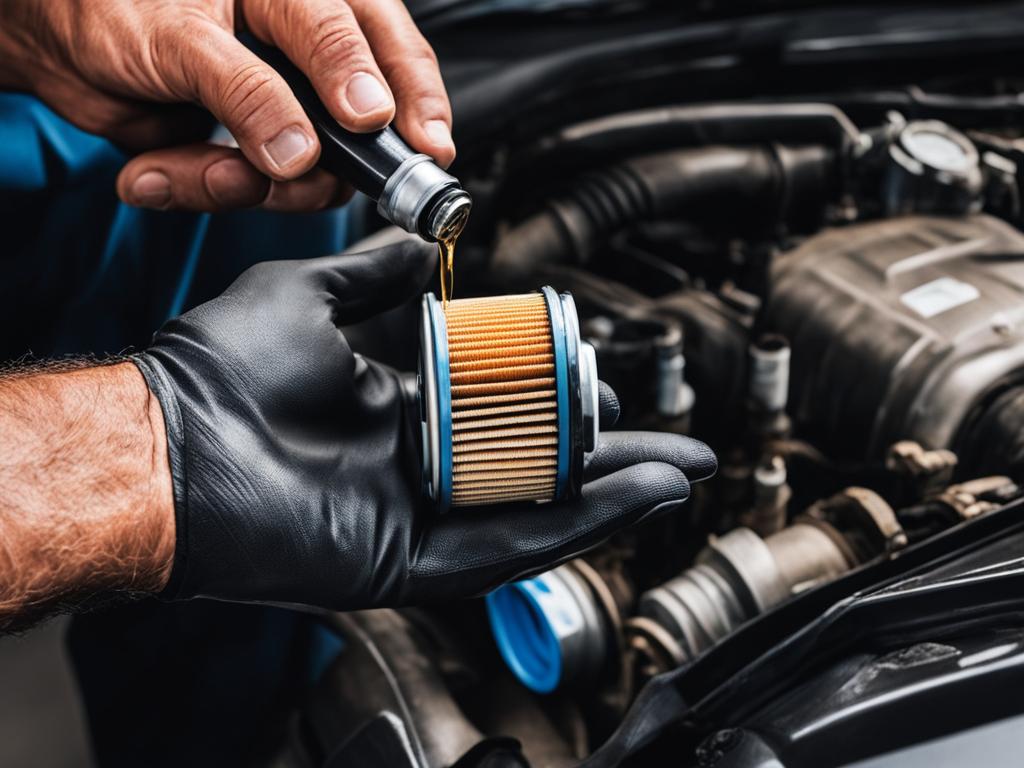The 2025 Camry’s Oil Change: A Guide To Optimal Performance And Longevity
By admin / August 19, 2024 / No Comments / 2025

The 2025 Camry’s Oil Change: A Guide to Optimal Performance and Longevity
The Toyota Camry, a perennial favorite in the midsize sedan segment, continues to impress with its blend of reliability, comfort, and fuel efficiency. As with any vehicle, regular maintenance is crucial to ensure optimal performance and longevity. This article delves into the recommended oil change interval for the 2025 Camry, exploring the factors that influence it and providing insights into best practices for maximizing your car’s health.
Understanding Oil Change Intervals
Oil change intervals are not a one-size-fits-all scenario. They depend on a multitude of factors, including:
- Driving Conditions: Frequent stop-and-go traffic, heavy towing, or driving in extreme temperatures can accelerate oil degradation and shorten the recommended interval.
- Oil Type: Synthetic oil typically offers longer life than conventional oil, potentially extending the interval.
- Vehicle Age and Mileage: As your Camry ages and accumulates mileage, its oil may degrade faster, requiring more frequent changes.
- Manufacturer Recommendations: Toyota provides specific guidelines for oil change intervals based on your Camry’s engine type, driving habits, and environmental conditions.
The 2025 Camry: A Closer Look
While specific details about the 2025 Camry are not yet available, we can glean insights from recent model years and general industry trends. The 2024 Camry, for example, features a range of engine options, including:
- 2.5L 4-cylinder engine: This engine typically recommends oil changes every 5,000-7,500 miles, depending on driving conditions.
- 3.5L V6 engine: The V6 engine, with its higher performance demands, may require oil changes slightly more frequently, potentially every 5,000 miles.
Decoding the Owner’s Manual
The most reliable source of information regarding your 2025 Camry’s oil change interval is your vehicle’s owner’s manual. It contains detailed instructions tailored specifically to your car’s model, engine type, and driving conditions. Pay close attention to the following sections:
- Maintenance Schedule: This section outlines a comprehensive maintenance plan, including oil change intervals, tire rotations, and other essential services.
- Driving Conditions: The manual will provide guidance on adjusting your oil change interval based on factors like frequent short trips, towing, or extreme weather.
- Oil Type Recommendations: Toyota specifies the type of oil recommended for your Camry, including viscosity and API certification.
Beyond the Manual: Additional Considerations
While the owner’s manual provides a strong foundation, consider these additional factors:
- Driving Style: Aggressive driving, frequent acceleration, and hard braking can stress the engine and shorten the oil’s lifespan.
- Oil Quality: Using high-quality oil, including synthetic options, can extend the interval and provide better engine protection.
- Engine Wear: As your Camry ages, its engine components may experience wear, potentially accelerating oil degradation.
Signs of Needing an Oil Change
Even if you follow the recommended interval, it’s essential to be aware of signs that your Camry may need an oil change sooner than expected:
- Dark or Dirty Oil: Oil should be clear or slightly amber in color. If it appears dark or has a thick, black sludge, it’s time for a change.
- Low Oil Level: Check your dipstick regularly to ensure adequate oil levels. If it’s consistently low, you may have a leak or excessive oil consumption.
- Engine Noise: Unusual noises like ticking or rattling could indicate low oil pressure or worn engine components.
- Check Engine Light: A check engine light could indicate a variety of issues, including low oil pressure or other engine problems.
The Importance of Timely Oil Changes
Regular oil changes are essential for maintaining your Camry’s health and performance. Here’s why:
- Engine Lubrication: Oil lubricates moving parts, reducing friction and wear.
- Cooling and Cleaning: Oil helps cool the engine and remove contaminants, preventing buildup and damage.
- Corrosion Protection: Oil acts as a barrier against corrosion, protecting engine components from rust and wear.
- Fuel Efficiency: Clean oil ensures optimal engine performance, leading to improved fuel economy.
- Extended Lifespan: Regular maintenance, including oil changes, can significantly extend your Camry’s lifespan and overall value.
DIY vs. Professional Service
Changing your Camry’s oil yourself can save money, but it requires time, tools, and a basic understanding of automotive mechanics. If you’re not comfortable with DIY maintenance, consider taking your car to a qualified mechanic or Toyota dealership.
Conclusion
The 2025 Camry’s oil change interval will depend on a variety of factors, including your driving habits, environmental conditions, and the engine type. By consulting your owner’s manual and being attentive to your car’s needs, you can ensure that your Camry receives the proper care and continues to deliver reliable performance for years to come. Remember, regular oil changes are a cornerstone of preventative maintenance, contributing to both your Camry’s longevity and your peace of mind.







